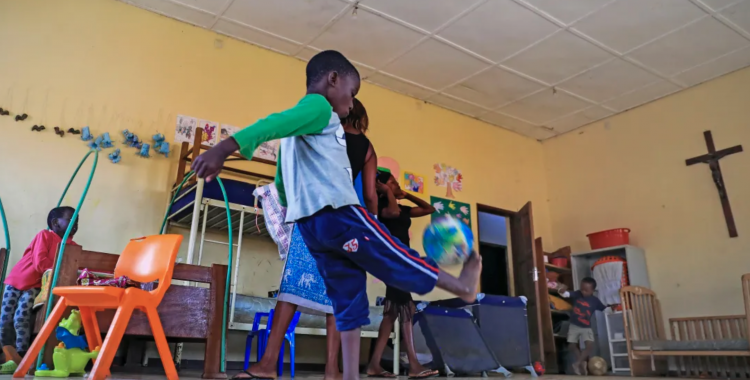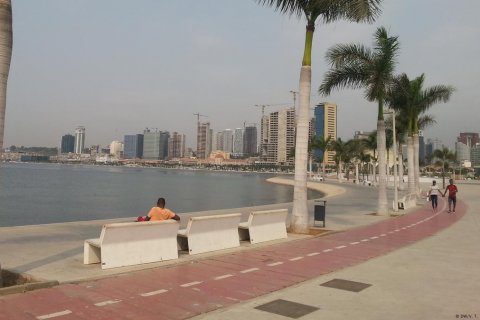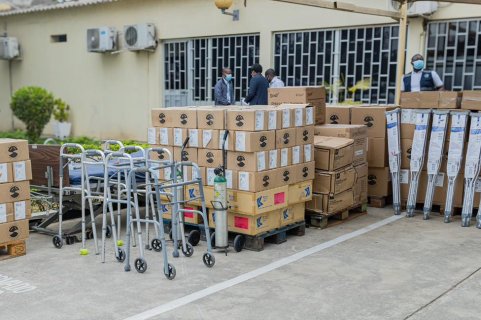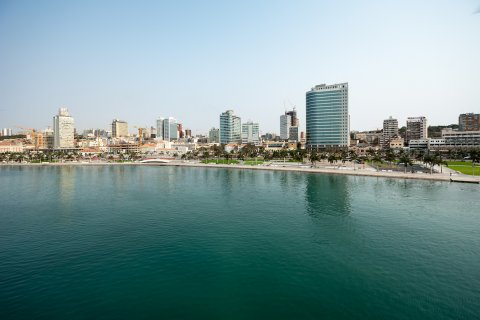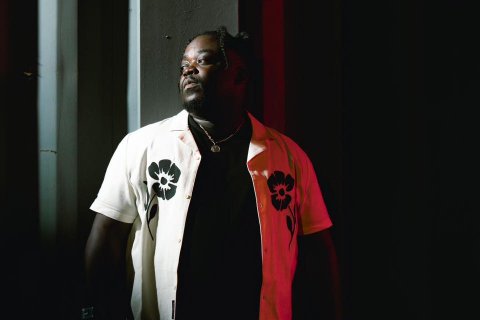It is difficult to know exactly how many children are abandoned, beaten or killed due to beliefs in witchcraft, which are deeply rooted in Angola, especially in some more traditionalist regions such as the province of Zaire, in the border area with the Democratic Republic of Congo, another African country where these practices persist.
"They believe a lot in witchcraft and everything they cannot explain they attribute to witchcraft. The children we have, who have been accused, have had a hard time within their families, have been beaten, and have been the target of verbal and physical violence. And there was even a case where they tried to take the girl's life by setting fire to a tire," reports Filipe Songo, a social educator at the center, located in Mbanza Congo.
There are children accused of witchcraft, cases of abandonment and evasion of paternity, victims of domestic violence and there are even those who have escaped human trafficking networks, facilitated by the proximity of the border.
To be accused of being a witch, there is no need for proof; a fortuitous fateful event is enough. The death of a family member – even one's own mother during childbirth – can be enough to accuse a child, leading to him or her being ostracized and removed from the family and community.
"Here, they strongly believe that if someone dies, there is an explanation. Someone killed this person. So they always try to find someone who caused the other person to lose their life. We even have cases of small children whose mothers died during childbirth and they blame the boy because he ate his mother. They say he ate her. They never say he killed her," explains the interim head of the center.
But there are also those who are accused of disturbing dreams, transforming into animals or flying on broomsticks, having special physical characteristics, mental illnesses, being intelligent, having extraordinary abilities or different behaviors.
Many family members are led to reinforce these beliefs by church pastors or 'kimbandeiros' (someone who casts spells) in the village who convince them of the evil of the children who themselves come to believe that they are witches.
"These are churches that sometimes forget what their focus is, which is social peace (...). Many churches, instead of preaching Jesus Christ, actually preach witchcraft and the faithful believe what the pastor says and attack the children who are unable to defend themselves", notes Filipe Songo.
The cures can involve purification rituals that involve corporal punishment and can even result in death.
"I didn't know I was a witch until he burned my head", says Mbapé (fictitious name), with his eyes downcast and his frail body that does not match his 13 years, at the center since 2022.
"He" is someone who took care of Mbapé when he was abandoned by his mother, shortly after arriving in Luanda.
"After three days, they started accusing me of being a witch. [My] stepfather started saying that his son was no longer sleeping well and that he was sick every day," he told Lusa.
The boy says that his mother started by defending him, but the pressure from the neighbors got the better of her and she ended up deciding to abandon him in Luvo, a town near the border with the DR Congo.
That's when Mbapé met a young man who was going to "take him to the other side" and with whom he lived until 2021, until he faced new accusations.
"His neighbors started accusing me because they had heard that my mother had abandoned me. After that, he didn't like me anymore," he laments.
One day, Mbapé suddenly wakes up with papers burning in his head "to tell the truth if he was a witch or not". Once again abandoned, he ends up on the street "living with some boys" until he is found by the authorities who take him to the center where he is currently being held.
Jane's story is almost the same. She is 17 and has a beautiful, youthful face, just beginning to come of age.
She arrived a year ago, after "some family complications".
She lived with her "grandmother" (aunt) in Luanda and was sent to her uncle, in Mbanza Congo, who received her already "reminded" of the accusations of witchcraft "that had been spread around the neighborhood".
Under social pressure, Jane ends up being thrown out by her uncle: "He said he didn't want to see me anymore, so that I would forget that I was no longer part of his family, that he didn't know me. I was sad, I cried a lot, I didn't know where to go".
Jane, with 200 kwanzas in her pocket, looks for a motorcyclist and goes alone in search of an "aunt", whom she does not find. As night falls, it is the motorcyclist himself who turns her in to the police station, where she will remain for a month, without reporting her uncle.
The accusations were based on "bad things that happened" when she was in Luanda and which she does not like to remember, preferring to dream of a better future when she finishes her studies.
"I would like to do many things, I would like to help children who need help, or build a home or a school or a pharmacy, or adopt someone to raise myself", she tells Lusa, already smiling.
The Frei Giorgio Zulianello Reception Centre promotes family reintegration and works to raise awareness in communities, with the support of its partners at World Vision.
"We make a point of sharing the message that people are different, that children are curious and have different characteristics from one another. That not everything can be explained by witchcraft", explains Filipe Songo, stressing that the aim is to show parents that behaviours associated with witchcraft can be something special or "a case of talent".
However, not all cases are successful and it is necessary to ensure that the child’s life is not at risk or that he or she will not suffer further abuse or abandonment if he or she returns to his or her family.
"Perhaps what we call witchcraft is a talent for doing special things, things that perhaps many people are not capable of doing. So, if the child has the ability to do something, that talent is something that God gave him or her", comments the educator.
Founded in 2007 by members of the Order of Friars Minor Capuchin, including Giorgio Luzianelo, who gave the institution its name, the center is managed jointly with the provincial government of Zaire and currently operates in precarious facilities, clearly insufficient to accommodate the 100 children between the ages of 3 and 17 who have found a new family there that gives them the affection and care they did not find in their blood family.

